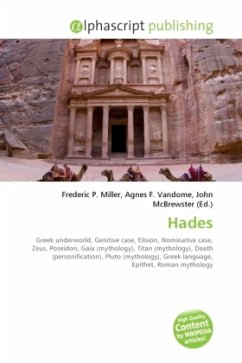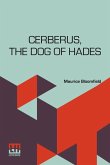Hades refers both to the ancient Greek underworld, the abode of Hades, and to the god of the underworld. Hades in Homer referred just to the god; the genitive , Haidou, was an elision to denote locality: "[the house/dominion] of Hades". Eventually, the nominative, too, came to designate the abode of the dead. In Greek mythology, Hades is the oldest male child of Cronous and Rhea. According to myth he and his brothers Zeus and Poseidon defeated the Titans and claimed rulership over the universe ruling the underworld, air, and sea, respectively; the solid earth, long the province of Gaia, was available to all three concurrently. Because of his association with the underworld, Hades is often interpreted by moderns as the Grim Reaper, even though he was not. By the Romans Hades was called Pluto, from his Greek epithet Plout n , meaning "Rich One". In Roman mythology, Hades/Pluto was called Dis Pater and Orcus. The corresponding Etruscan god was Aita. Symbols associated with him are the Helm of Darkness and the three-headed dog, Cerberus.
Bitte wählen Sie Ihr Anliegen aus.
Rechnungen
Retourenschein anfordern
Bestellstatus
Storno








